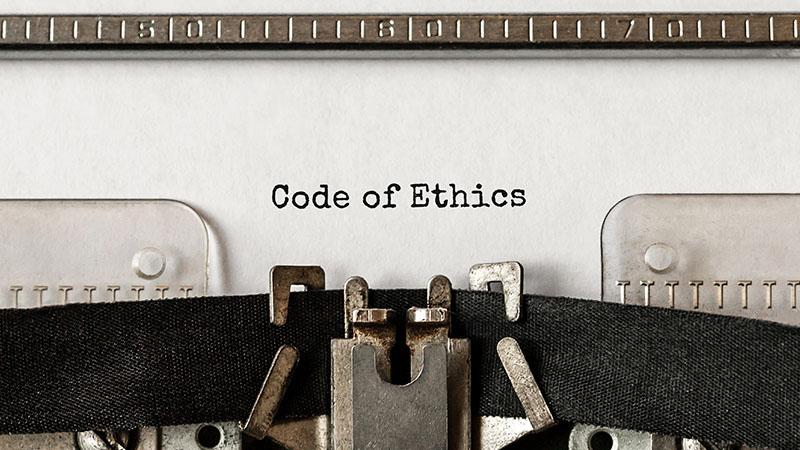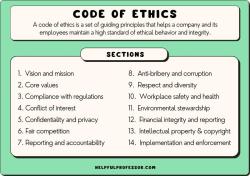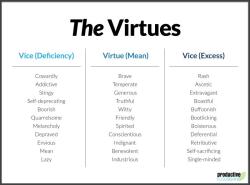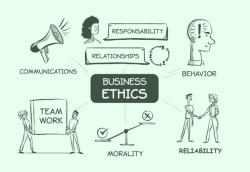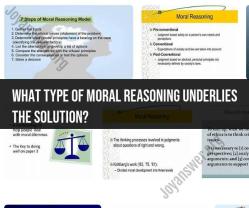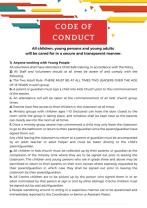What do you need to know about the IIA code of ethics?
The IIA Code of Ethics is a set of principles and rules established by the Institute of Internal Auditors (IIA) to guide the conduct of internal auditors in their professional roles. The IIA is a global professional association for internal auditors, and its Code of Ethics is designed to promote integrity, objectivity, confidentiality, and professionalism in the practice of internal auditing. Here are key points to understand about the IIA Code of Ethics:
1. Core Principles:
- The IIA Code of Ethics is based on four core principles: Integrity, Objectivity, Confidentiality, and Professional Competency.
2. Integrity:
- Internal auditors are expected to be honest and straightforward in all professional and business relationships. They should not knowingly be a party to any illegal activity or engage in conduct that discredits the profession.
3. Objectivity:
- Internal auditors are required to be impartial and not compromise their professional judgment. They must avoid conflicts of interest and disclose any such conflicts that could compromise their objectivity.
4. Confidentiality:
- Internal auditors are obligated to respect the value and ownership of information they receive during the course of their work. They should not disclose information without appropriate authority unless there is a legal or professional obligation to do so.
5. Professional Competency:
- Internal auditors are expected to continually improve their skills and knowledge to perform their duties competently. They should also provide accurate, objective, and clear communications in their reporting.
6. Scope and Applicability:
- The IIA Code of Ethics applies to all members of the IIA, including Certified Internal Auditors (CIAs) and those seeking IIA certifications. It is intended to guide the professional conduct of internal auditors in various industries and sectors.
7. Compliance with Laws and Regulations:
- Internal auditors are required to comply with applicable laws and regulations. If compliance is impossible or would violate the Code of Ethics, internal auditors should disclose the conflict to senior management or the board.
8. Responsibility to Stakeholders:
- Internal auditors have a responsibility to serve the interests of their organization and its stakeholders. They should contribute to effective governance processes and risk management.
9. Handling Ethical Dilemmas:
- The IIA Code of Ethics provides guidance on handling ethical dilemmas. Internal auditors are encouraged to discuss issues with colleagues, supervisors, or other appropriate individuals to resolve ethical conflicts.
10. Consequences of Noncompliance:
- Violations of the IIA Code of Ethics can result in disciplinary action by the IIA, including the revocation of professional certifications.
11. Periodic Review and Update:
- The IIA periodically reviews and updates its Code of Ethics to ensure its relevance in a changing professional and business environment.
12. Global Applicability:
- The IIA Code of Ethics is designed to be applicable globally, recognizing the diverse cultural and legal environments in which internal auditors operate.
Internal auditors are expected to be familiar with and adhere to the IIA Code of Ethics throughout their professional careers. The Code provides a framework for ethical behavior and helps maintain the integrity and reputation of the internal audit profession.
What key points should individuals be aware of regarding the IIA code of ethics?
Individuals considering or currently working in the field of internal auditing should be aware of several key points regarding the IIA Code of Ethics:
1. Four Core Principles:
- Integrity: Demonstrating honesty, diligence, and responsibility in all aspects of your work. This includes avoiding conflicts of interest and upholding the highest ethical standards.
- Objectivity: Maintaining impartiality and avoiding bias in your auditing activities. This involves basing your judgments solely on evidence and professional standards.
- Confidentiality: Respecting the confidentiality of information you obtain during your work. This means safeguarding sensitive information and only disclosing it when authorized.
- Competency: Possessing the necessary knowledge, skills, and experience to perform your audit duties effectively. This involves maintaining professional development and staying up-to-date with relevant standards and practices.
2. Rules of Conduct:
Each principle is supported by detailed rules of conduct that provide specific guidance on how to apply the principles in practical situations. For example, under the principle of objectivity, there are rules prohibiting accepting gifts or engaging in relationships that could compromise your independence.
3. Importance of Professional Judgment:
The Code emphasizes the importance of using professional judgment when applying the principles and rules of conduct. This means considering the specific circumstances of each situation and acting in a way that upholds the ethical values of the profession.
4. Consequences of Violations:
Violations of the Code can have serious consequences, including disciplinary action, loss of professional reputation, and even legal liability. Therefore, it is crucial for individuals to understand and comply with the Code.
5. Continual Reference and Education:
The Code is not a static document, and it is essential to stay informed about any updates or interpretations issued by the IIA. Regularly reviewing the Code and participating in ethics training can help individuals stay on track and avoid ethical pitfalls.
Additional Key Points:
- The Code applies to all individuals involved in internal auditing, regardless of their job title or position.
- The Code promotes good professional practice and serves as a foundation for trust and confidence in the internal audit profession.
- Seeking guidance from the IIA Ethics Helpline or other resources can be helpful if you have questions or concerns about applying the Code in specific situations.
By understanding and adhering to the IIA Code of Ethics, individuals can contribute to the integrity and effectiveness of the internal audit profession and build trust with stakeholders.
I hope this summary provides a helpful overview of the key points individuals should be aware of regarding the IIA Code of Ethics. Please let me know if you have any further questions.
